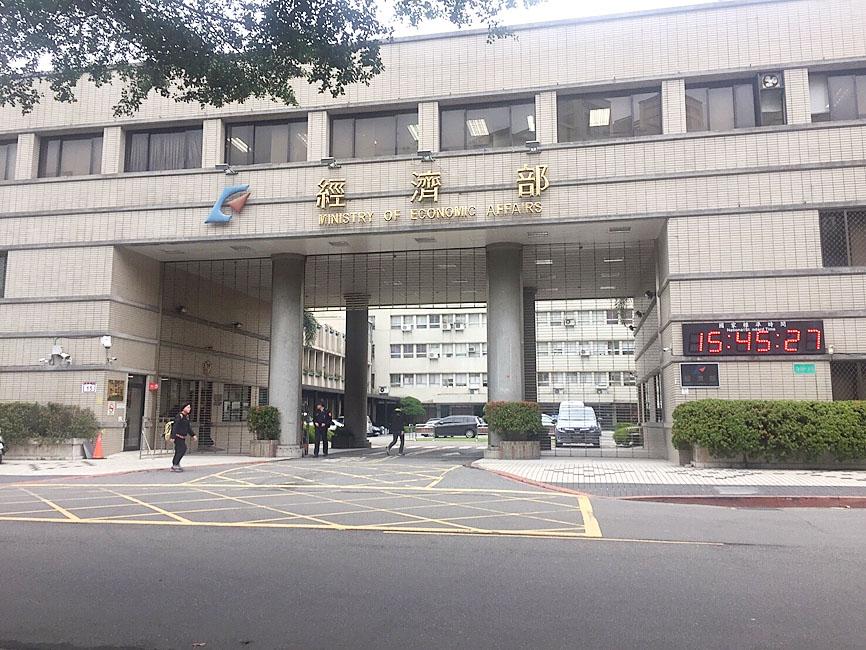Taiwan was ranked as the third-best investment destination, alongside South Korea, in the lastest report by the US-based Business Environment Risk Intelligence SA (BERI), the Ministry of Economic Affairs said yesterday.
BERI also gave Taiwan the highest score for foreign exchange risk, making it the most secure nation in the world regarding foreign exchange.
The report showed Taiwan scored a profit opportunity recommendation (POR) — a gauge that BERI uses to evaluate a nation as an investment destination — of 62, up one point from 61 in its May and August reports.

Photo: Huang Pei-chun, Taipei Times
Taiwan retained its third-place ranking from the two earlier reports, although South Korea tied with it after improving from 60 in August and 58 in May.
Switzerland topped the latest list, with a POR of 68, followed by Norway, with a POR of 63. Finland and Singapore followed in fourth place with a POR of 56.
BERI uses three main indicators to assess investment risk: operating conditions (operations risk), political risk, and foreign exchange and external accounts position (remittance and repatriation factor) risk.
Taiwan scored 60 in operating conditions, placing it third; 46 in political risk, ranking it 14; and 80 in foreign exchange risk, putting it in first place.
The report projected that Taiwan’s POR would increase to 67 in 2025, allowing it to retain its third-place ranking alongside South Korea.
Elsewhere in Asia, Japan scored 51 points, placing it 14th in the world; China scored 50, putting it in 16th place; Indonesia scored 48 to come in at 18th; the Philippines scored 44 for 23rd place; India scored 43, coming in at 24th; and Thailand scored 35 to place at 39th.
Fifty countries were included in the report, with Venezuela placing last with a POR of 20. The global average POR is 44.
BERI releases three reports each year, the ministry said.

TRUST: The KMT said it respected the US’ timing and considerations, and hoped it would continue to honor its commitments to helping Taiwan bolster its defenses and deterrence US President Donald Trump is delaying a multibillion-dollar arms sale to Taiwan to ensure his visit to Beijing is successful, a New York Times report said. The weapons sales package has stalled in the US Department of State, the report said, citing US officials it did not identify. The White House has told agencies not to push forward ahead of Trump’s meeting with Chinese President Xi Jinping (習近平), it said. The two last month held a phone call to discuss trade and geopolitical flashpoints ahead of the summit. Xi raised the Taiwan issue and urged the US to handle arms sales to

A magnitude 5.6 earthquake struck off the coast of Yilan County at 12:37pm today, with clear shaking felt across much of northern Taiwan. There were no immediate reports of damage. The epicenter of the quake was 16.9km east-southeast of Yilan County Hall offshore at a depth of 66.8km, Central Weather Administration (CWA) data showed. The maximum intensity registered at a 4 in Yilan County’s Nanao Township (南澳) on Taiwan’s seven-tier scale. Other parts of Yilan, as well as certain areas of Hualien County, Taipei, New Taipei City, Taoyuan, Hsinchu County, Taichung and Miaoli County, recorded intensities of 3. Residents of Yilan County and Taipei received

Taiwan has secured another breakthrough in fruit exports, with jujubes, dragon fruit and lychees approved for shipment to the EU, the Ministry of Agriculture said yesterday. The Animal and Plant Health Inspection Agency on Thursday received formal notification of the approval from the EU, the ministry said, adding that the decision was expected to expand Taiwanese fruit producers’ access to high-end European markets. Taiwan exported 126 tonnes of lychees last year, valued at US$1.48 million, with Japan accounting for 102 tonnes. Other export destinations included New Zealand, Hong Kong, the US and Australia, ministry data showed. Jujube exports totaled 103 tonnes, valued at

BIG SPENDERS: Foreign investors bought the most Taiwan equities since 2005, signaling confidence that an AI boom would continue to benefit chipmakers Taiwan Semiconductor Manufacturing Co’s (TSMC, 台積電) market capitalization swelled to US$2 trillion for the first time following a 4.25 percent rally in its American depositary receipts (ADR) overnight, putting the world’s biggest contract chipmaker sixth on the list of the world’s biggest companies by market capitalization, just behind Amazon.com Inc. The site CompaniesMarketcap.com ranked TSMC ahead of Saudi Aramco and Meta Platforms Inc. The Taiwanese company’s ADRs on Tuesday surged to US$385.75 on the New York Stock Exchange, as strong demand for artificial intelligence (AI) applications led to chip supply constraints and boost revenue growth to record-breaking levels. Each TSMC ADR represents